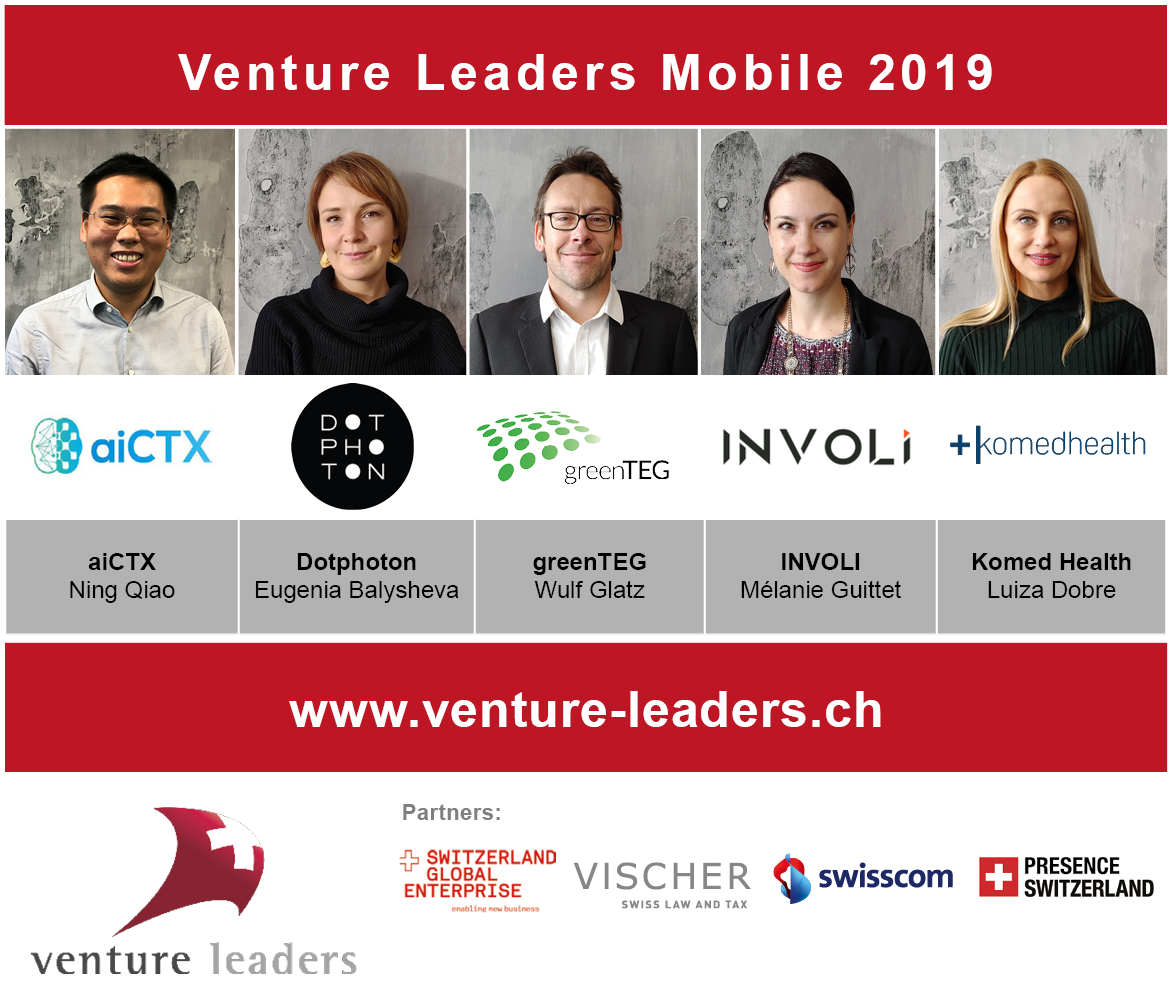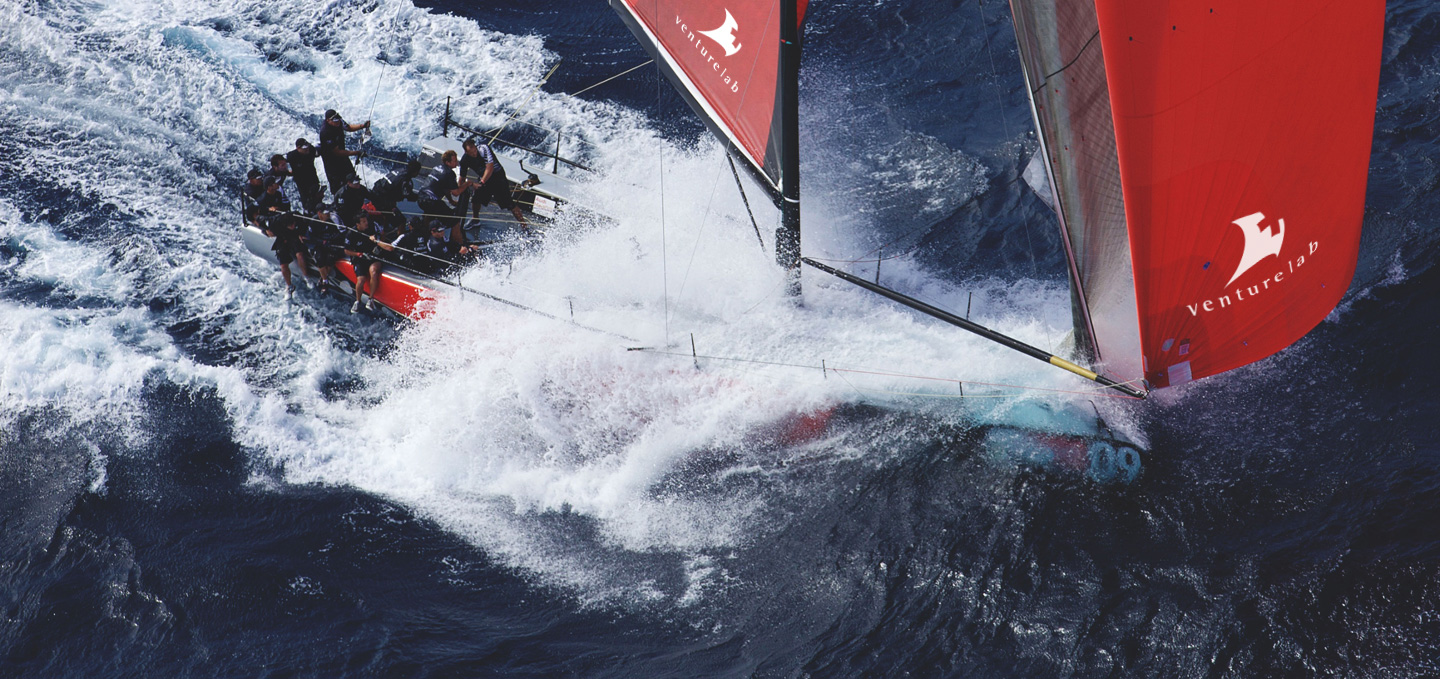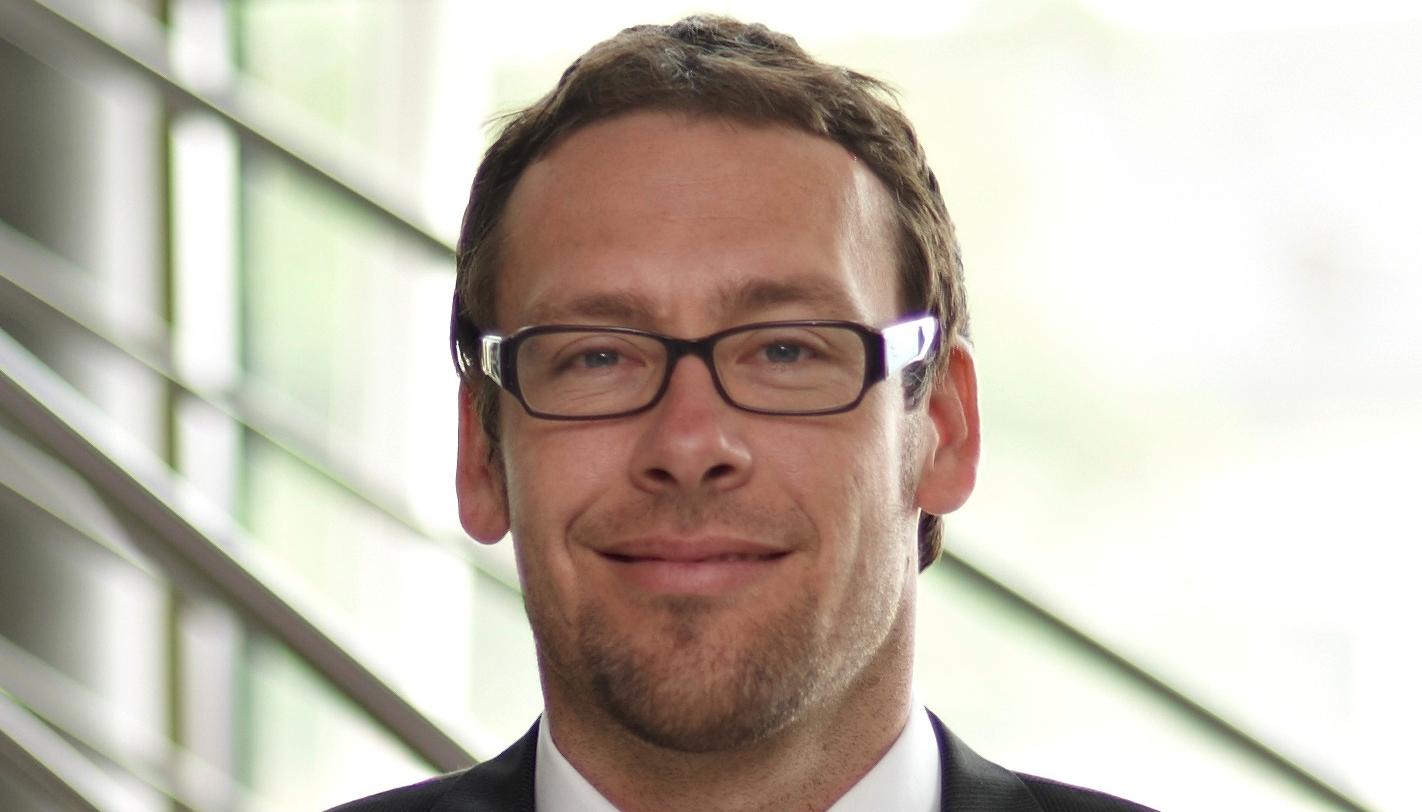Five Venture Leaders will represent Switzerland at MWC Barcelona this month. In the third interview with the team, meet Wulf Glatz, chief executive and co-founder of greenTEG AG. Learn why core-body temperature is important and how a decade running the company has given him entrepreneurial 'balls of steel'.
GreenTEG AG offers the world's first sensor for continuous, non-invasive core body temperature measurement in wearables. Core body temperature is vital to understanding a person’s health and the Zurich-based company will offer accuracy of 0.2 degrees Celsius, compared to current, spot measurements that typically offer 0.5 degrees.
What are your goals for MWC Barcelona?
Our new sensor, which measures core body temperature. I'm going to meet a lot of existing and potential clients, and hopefully advance current projects. I also want to generate new leads with wearable integrators that are developing consumer, sports or medical products. I'd like to end the congress with new potential clients, who are excited about our product.
What makes your sensor different?
We offer the only solution for continuous, non-invasive core body temperature measurement in wearables. Our approach is the first that can be integrated into a wearable, which means users will be able to accurately track temperature change over time, without interrupting their normal activities.
How has greenTEG succeeded?
Firstly, our conceptual approach is different. Instead of simple skin temperature measurement, we use additional thermo-parameters. Our sensor fusion combines data from several sensors. Secondly, we use sensors and hardware where we are experts, where we own the intellectual property, and that we manufacture ourselves. This understanding gives us an advantage when it comes to incorporating the thermal sensors and developing the algorithm required to achieve the necessary accuracy.
Why is core body temperature important?
If you think core body temperature is boring and that it's always 37.2 degrees Celsius, you're wrong. Body temperature is closely linked to your body clock and circadian rhythm – which affects feeling tired or awake. Like in jet-lag, after you cross several time-zones, suddenly you're lowering your temperature in the middle of the day, which automatically makes you tired. And the other way around: you're fully awake in the night, because your temperature isn't being lowered.
What kinds of applications could benefit from your sensor?
The clearest integration would be in smartwatches. Currently they can measure your heartrate, in the future other vital parameters, such as core body temperature will be added. This will open new kinds of applications. In health this could be tracking ovulation more accurately, in performance sport athletes could use core body temperature to know when best to train, to recover or to perform.
Why is unobtrusive measurement important?
If you want to shift to preventive, proactive healthcare, measuring vital parameters must become part of people's daily lives. People don’t want to visit a doctor or measure themselves every day or week. By integrating a sensor into something people wear daily, you get this data without disturbing them. You may be able to diagnose a problem earlier, when it's cheaper to treat, or even when it can be avoided completely by the user changing their lifestyle, their sleep times, or their diet. It can make the health outcome less serious and cheaper to cure.
This will be your second Venture Leaders roadshow, after Venture Leaders China in 2014. What's your tactic for such an event?
It's 90 percent preparation. I'll secure as many meeting as possible before we leave for Barcelona. In my experience it's usually difficult to arrange meetings at short notice once you're there. I've planned meetings with existing customers and project champions, and then I’ll hit the wearables part the congress to find potential customers.
Who would you most like to meet at MWC Barcelona?
Wearable companies in performance sports and those monitoring patient health.
What's the best thing about being an entrepreneur?
It's an exciting life. The nicest thing is the impact. In a startup everything can happen more quickly, and every single person can change the fate of the whole company. Sometimes in a bigger organization you can feel like it wouldn't matter if you weren't there.
What was your best day with greenTEG in 2018?
It was a great feeling in July when we reached break-even, and we've been profitable ever since. We also celebrated in the autumn, the day we hit 1 million francs revenue.
What are greenTEG's goals for 2019?
Revenue. We need to get into an integration phase, and win design-ins.
And your worst day as an entrepreneur?
There have been many [laughs]. I was joking with a friend that after two or three years, you know that every day you'll get a kick in the balls, it's just that over time they become steel. If you don't get one kick a day, either something is wrong or it’s a very good day!
Fortunately in entrepreneurship the good memories last long and, like with pain, you forget the bad stuff very quickly.
What were the benefits of Venture Leaders China?
It was very valuable for the company. The most fundamental benefits were to get a feeling for what China is, how the country functions, its culture and dynamics, the dangers and the potential for business. Chinese orders grew from zero, to account for 20 percent of revenue in our range of laser-measurement sensors.
Another benefit was the network. I'm still in regular contact with some of the other Venture Leaders and several times it’s really helped that I could call someone for advice.

The Swiss National Startup Team's roadshow to MWC Barcelona is organized by Venturelab in cooperation with Switzerland Global Enterprise, VISCHER, Swisscom and Presence Switzerland.
Follow the Venture Leaders Mobile roadshow (February 24th to 28th) on social media using the hashtags #VleadersMobile #SwissTech


